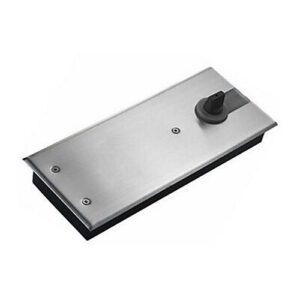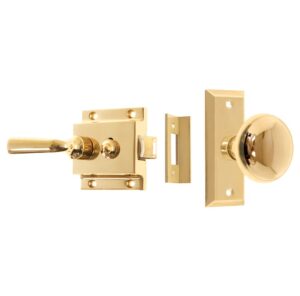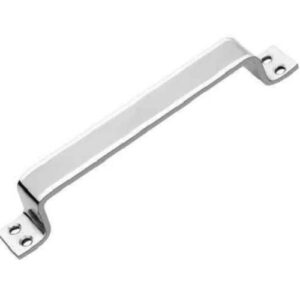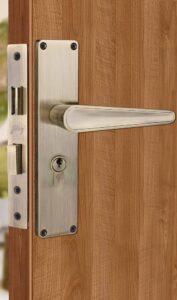BIS Certification for Door Closures as per IS 6343, IS 14912, IS 3564, IS 6315, IS 1019, IS 208 AND IS 4992
In the world of construction and architecture, the reliability and safety of door hardware play a crucial role in ensuring the security and functionality of a building. The Bureau of Indian Standards (BIS) has established comprehensive standards for various door hardware components, including door closers, floor springs, rim latches, and door handles, to name a few. In this article, we’ll delve into the BIS certifications for specific door hardware components and shed light on the importance of compliance with these standards.
INDIAN STANDARDS
IS 6343:1982 DOOR CLOSERS (PNEUMATICALLY REGULATED) FOR LIGHT DOORS WEIGHING UP TO 40 KG
 This standard covers the requirements for door closers (pneumatically regulated) for use on light doors weighing up to 40’kg. The closer shall essentially consist of a cylinder made out of brass, aluminium or steel having a smooth drawn finish. The wall thickness shall not be less than 1 mm and one end of the cylinder shall permit access to the piston for servicing. An expanding member of a suitable material shall be provided for the piston to be maintained in positive contact with the tube for checking, and for sealing of the leakage. The speed of closing the door shall be controlled by means of covered helical torsion spring having adjustable tension. The closer shall be mounted on brackets having holes for not less than four attaching screws. Bearing pins and screws when assembled shall be secured in place. Besides other general requirements endurance test is specified in the standard.
This standard covers the requirements for door closers (pneumatically regulated) for use on light doors weighing up to 40’kg. The closer shall essentially consist of a cylinder made out of brass, aluminium or steel having a smooth drawn finish. The wall thickness shall not be less than 1 mm and one end of the cylinder shall permit access to the piston for servicing. An expanding member of a suitable material shall be provided for the piston to be maintained in positive contact with the tube for checking, and for sealing of the leakage. The speed of closing the door shall be controlled by means of covered helical torsion spring having adjustable tension. The closer shall be mounted on brackets having holes for not less than four attaching screws. Bearing pins and screws when assembled shall be secured in place. Besides other general requirements endurance test is specified in the standard.
IS 14912:2001 DOOR CLOSERS, CONCEALED TYPE (HYDRAULICALLY REGULATED)
This standard covers the requirement for concealed type hydraulically operated door closers, fixed in concealed position within the thickness of the panel on vertical hinge type doors opening to one side only and not weighing more than 80 kg. The closing time shall be easily adjustable between 5 to 20s by means of regulating screws. Hydraulic oil filling shall work satisfactorily at all temperatures between 500C and –1O0C without requiring any change except adjustment of the regulating screw. The surface of the closers shall be clean, without sham edges, free from cracks, dents, burrs, or any other visible surface defects. Endurance test for 50000 cycles has been specified in the standard.
IS 3564:1995 HYDRAULICALLY REGULATED DOOR CLOSERS
Door closers are made in several designs and types; some are made to be fixed in concealed positions while others are made to function in exposed positions; some work only on spring action while others require hydraulic check to arrest motion/speed m closing the door and to avert banging. This standard covers the hydraulic door closers of exposed type which are being widely used in the country and lays down the requirements for their manufacture and performance.
IS 6315:1992 FLOOR SPRINGS (HYDRAULICALLY REGULATED) FOR HEAVY DOORS
 This standard covers the requirements for concealed type floor springs ( hydraulically regulated ) for vertical doors weighing not more than 125 kg. In case of doors consisting of more than one leaf the weight of each leaf shall not exceed 125 kg. The dimensions and tolerances of floor springs shall be as agreed to between the purchaser and the manufacturer. The oil-check shall work satisfactorily at all temperatures between 49°C and – 10oC without requiring any other change except by the adjustment of the capstan nut. The speed of closing the door shall be adjustable by means of a suitable controlling device. Tension of the spring shall be increased or decreased by turning the capstan nuts clockwise or anticlockwise. For exceptionally low temperature, the adjustment in the speed could be made by the change in the grade of oil. Besides material of construction of various components of floor spring standard also specifies the endurance requirement.
This standard covers the requirements for concealed type floor springs ( hydraulically regulated ) for vertical doors weighing not more than 125 kg. In case of doors consisting of more than one leaf the weight of each leaf shall not exceed 125 kg. The dimensions and tolerances of floor springs shall be as agreed to between the purchaser and the manufacturer. The oil-check shall work satisfactorily at all temperatures between 49°C and – 10oC without requiring any other change except by the adjustment of the capstan nut. The speed of closing the door shall be adjustable by means of a suitable controlling device. Tension of the spring shall be increased or decreased by turning the capstan nuts clockwise or anticlockwise. For exceptionally low temperature, the adjustment in the speed could be made by the change in the grade of oil. Besides material of construction of various components of floor spring standard also specifies the endurance requirement.
IS 1019:1974 RIM LATCHES
 This standard lays down the requirements regarding material, dimensions, manufacture and finish of rim latches for general use. Rim latches shall be of the following two types: Type 1 -Rim latches which open when the handle is turned in one direction only. Type 2 – Rim latches which open when the’ handle is turned in any direction. The standard sizes of rim latches shall be 75, 100, 125 and 150 mm.
This standard lays down the requirements regarding material, dimensions, manufacture and finish of rim latches for general use. Rim latches shall be of the following two types: Type 1 -Rim latches which open when the handle is turned in one direction only. Type 2 – Rim latches which open when the’ handle is turned in any direction. The standard sizes of rim latches shall be 75, 100, 125 and 150 mm.
IS 208:2020 DOOR HANDLES
 This standard lays down the requirements for materials, manufacture, dimensions and finish of door handles of the types that are commonly fixed to doors. Doors handle shall be of the following types according to the materials used: a) Type 1 — Cast b) Type 2 — Pressed oval c) Type 3 — Pressed half oval d) Type 4 — Fabricated. Materials for different types of door handles shall be as follows: a) Type 1 — Cast iron, malleable cast iron, cast brass, cast aluminium alloy or zinc alloy die casting. b) Type 2 and Type 3 — Mild steel or stainless steel, and c) Type 4 — Mild steel, stainless steel, brass or aluminium alloy.
This standard lays down the requirements for materials, manufacture, dimensions and finish of door handles of the types that are commonly fixed to doors. Doors handle shall be of the following types according to the materials used: a) Type 1 — Cast b) Type 2 — Pressed oval c) Type 3 — Pressed half oval d) Type 4 — Fabricated. Materials for different types of door handles shall be as follows: a) Type 1 — Cast iron, malleable cast iron, cast brass, cast aluminium alloy or zinc alloy die casting. b) Type 2 and Type 3 — Mild steel or stainless steel, and c) Type 4 — Mild steel, stainless steel, brass or aluminium alloy.
IS 4992:1975 DOOR HANDLES FOR MORTICE LOCK (VERTICAL TYPE)
 This standard covers the requirements for door handles for operation of mortice locks ( vertical type ) covered in IS : 2209. The door handles shall be normally made to the dimension and tolerances thereon, as given in the standard.
This standard covers the requirements for door handles for operation of mortice locks ( vertical type ) covered in IS : 2209. The door handles shall be normally made to the dimension and tolerances thereon, as given in the standard.
QUALITY CONTROL ORDER (TECHNICAL REGULATION) ISSUED BY THE DEPARTMENT FOR PROMOTION OF INDUSTRY AND INTERNAL TRADE, MINISTRY OF COMMERCE AND INDUSTRY, GOVT. OF INDIA ON 23 OCTOBER 2023 FOR MANDATORY BIS CERTIFICATION
The DPIIT, Ministry of Commerce & Industry, Govt. of India, has issued an order, making it mandatory for above hardware products to be used in India, whether manufactured in India or imported from foreign countries, shall mandatorily carry the Standard Mark of the Bureau of Indian Standards under a valid BIS licence. In short, it has become obligatory for all the manufacturers of above mentioned hardwares, whether in India or overseas, to immediately apply for BIS licence and obtain a valid BIS certification licence before that the last date of implementation of the order, i.e., 22 April 2024.
BIS CERTIFICATION SCHEME
The BIS Standards listed above establishes a comprehensive framework encompassing various quality parameters that relevant hardware materials must adhere to. The Bureau of Indian Standards Certification Scheme is a vital framework established by the Indian government to ensure the quality, safety, and reliability of products available in the market. This scheme aims to safeguard consumer interests by setting stringent benchmarks and guidelines that products must meet before they can be deemed compliant. BIS certification covers a wide range of industries and products, encompassing the entire gamut of industrial and manufacturing activity. Various steps involved in the BIS Certification process are enumerated below:
- Standard Identification: Manufacturers identify the relevant BIS standard that applies to their chosen product category. These standards outline the specific quality, safety, and performance requirements that the product must meet.
- Application Submission: Manufacturers submit an application for BIS certification to the Bureau of Indian Standards (BIS), providing details about the product, its specifications, and the desired certification mark.
- Factory Inspection: BIS conducts an inspection of the manufacturer’s production facility to assess the quality control processes, infrastructure, and adherence to relevant standards.
- Sample Testing: BIS collects samples of the product from the manufacturer for testing in authorized BIS laboratories or recognized testing centers. These tests evaluate various parameters specified by the BIS standard.
- Certification Decision: Based on the satisfactory test results and compliance with standards, BIS decides whether to grant certification to the product. If approved, the manufacturer is issued a BIS certification license.
- Regular Monitoring: BIS monitors the manufacturing process of certified products through periodic audits and market surveillance to ensure ongoing compliance with quality control processes and standards.
OMEGA QMS PVT. LTD. – PARTNERING FOR SUCCESS
In the pursuit of achieving BIS certification and maintaining the highest levels of product quality, Omega QMS Pvt. Ltd. emerges as an invaluable partner for manufacturers. Backed by a global presence and a stellar track record of successful collaborations with Fortune 500 companies, Omega QMS provides an extensive array of services designed to streamline the certification process and ensure compliance with industry standards.
- Expert Guidance: Omega brings together a team of seasoned experts who possess in-depth knowledge of regulatory requirements, industry best practices, and intricacies of certification process. These experts guide manufacturers through the complex landscape, offering insights and strategies to navigate the process efficiently.
- Testing and Validation: Omega assists manufacturers in planning and executing necessary tests and validations required for BIS certification.
- Documentation and Compliance: The journey toward BIS certification demands meticulous documentation of processes, materials, and testing procedures. Omega aids manufacturers in creating comprehensive and accurate documentation that aligns with BIS requirements, reducing the risk of errors and rejections.
- Audit Support: Omega prepares manufacturers for BIS audits, which are a crucial part of the certification process. With its expertise, the organization ensures that manufacturers are well-prepared for audits, addressing any issues that may arise and increasing the likelihood of a successful outcome.
- Customized Approach: Each manufacturer’s journey toward BIS certification is unique. Omega understands this and tailors its services to fit the specific needs, challenges, and goals of individual manufacturers, ensuring a personalized and effective approach.
- Global Experience: With presence in over 40 countries, Omega brings global experience to the table. This international exposure allows the organization to offer insights into varying regulatory environments and industry practices, enabling manufacturers to excel globally.
Omega QMS Pvt. Ltd. functions as a strategic partner for manufacturers aiming to achieve BIS Certification. Its multifaceted approach encompasses expert guidance, process control, testing and validation support, documentation assistance, audit preparation, training, and a global perspective. By collaborating with Omega, manufacturers gain a competitive edge in their pursuit of certification while upholding the highest standards of product quality and consumer satisfaction.
For more details you can reach out to Omega at info@globalomega.com.
In conclusion, BIS certification is pivotal in ensuring the quality, safety, and compliance of door hardware components. With Omega QMS Pvt Ltd as a trusted partner, businesses can confidently embark on the certification journey, knowing that their products will meet the stringent standards set by the Bureau of Indian Standards.

Leave a Reply